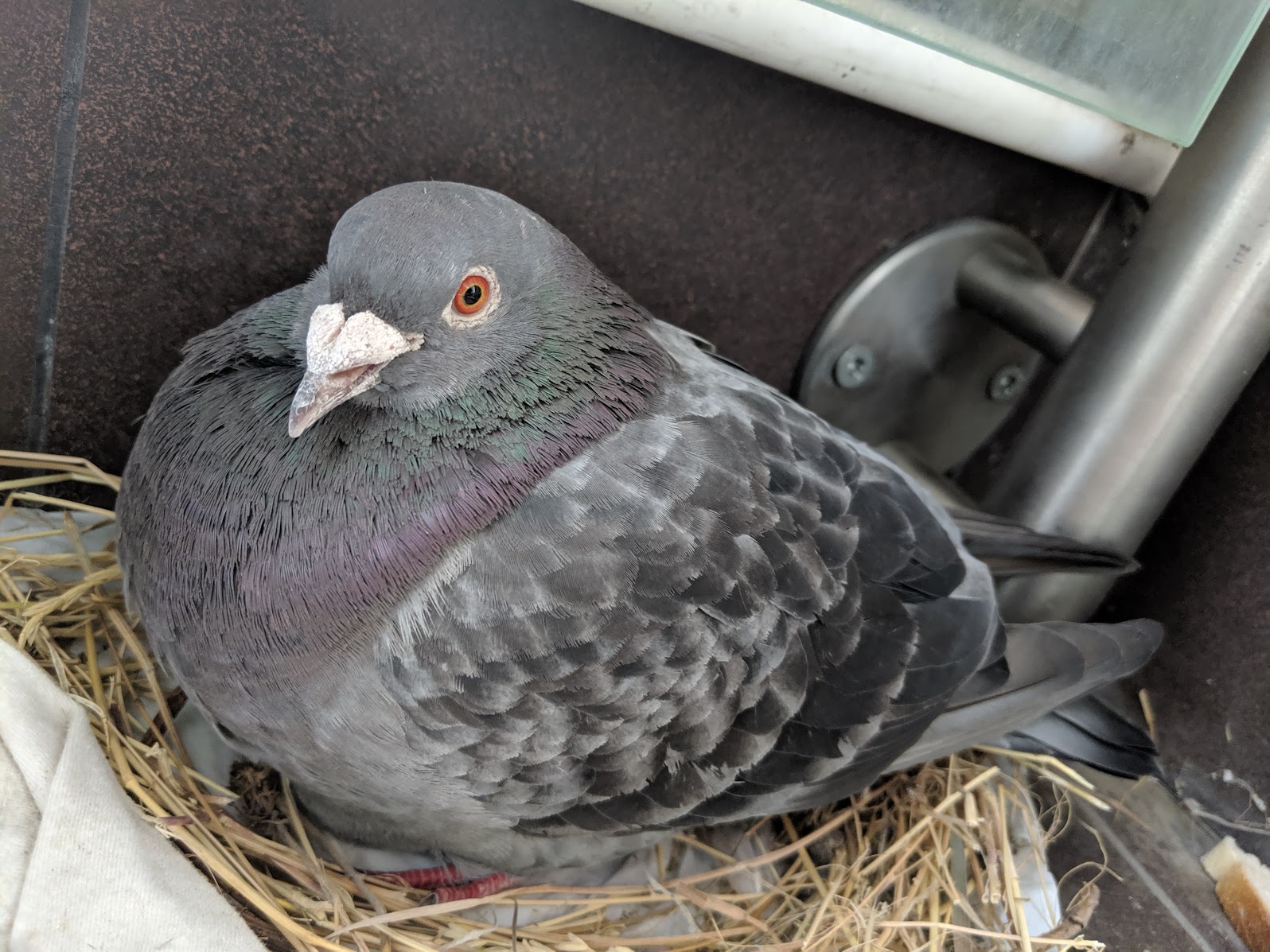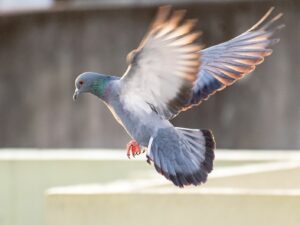Do pigeons make milk? Do they produce milk? This is another super interesting question. Let’s explore it in detail.
When most people think of pigeons, they may not associate them with the ability to produce milk. However, pigeons, like all birds, have a unique way of feeding their offspring.
They produce a secretion called “pigeon milk” that is produced in the crop of both parents and fed to the chicks.
The purpose of this article is to examine this secretion, known as “pigeon milk,” and to understand its composition, function, and potential implications it has.
JUMP TO:
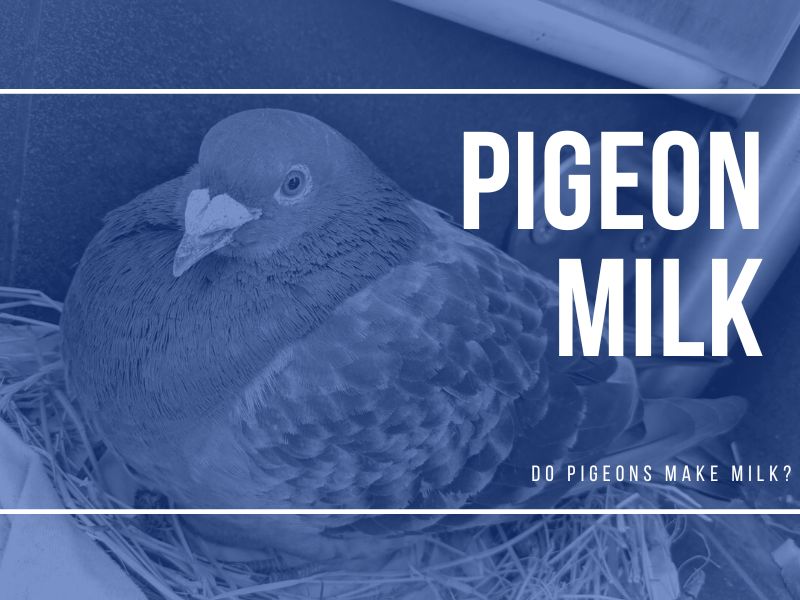
Do pigeons make milk? 10-second summary
Pigeons do not produce milk in the traditional sense as mammals do, as they do not have mammary glands. However, they do produce a secretion called “pigeon milk” that is produced in the crop of both parents and fed to the chicks. This secretion is not milk in the traditional sense, but rather a nutrient-rich liquid that is produced by the parents in order to feed their chicks.
Other articles about pigeons:
How do pigeons make milk?
So do pigeons produce milk? Yes, they do.
Overview of the reproductive system of pigeons
Pigeons have a unique reproductive system, both male and female pigeons have a specialized organ called a “crop” located in their upper gastrointestinal tract. The crop is used to store and pre-digest food for themselves and their chicks.
The role of hormones in pigeon milk production
Hormones play a crucial role in the production of the secretion called “pigeon milk”. The hormone prolactin is responsible for stimulating the production of the secretion in both parents.
The physical characteristics of pigeons associated with the production of pigeon milk
Pigeons have a specialized organ called a crop which is used to store and pre-digest food for themselves and their chicks. Both parents produce the pigeon milk secretion in the crop and feed it to their chicks. The secretion is produced and secreted in the crop of both parents, it is a thick, clear liquid, containing large amounts of protein, fat, and carbohydrates. It is fed to the chicks via regurgitation.
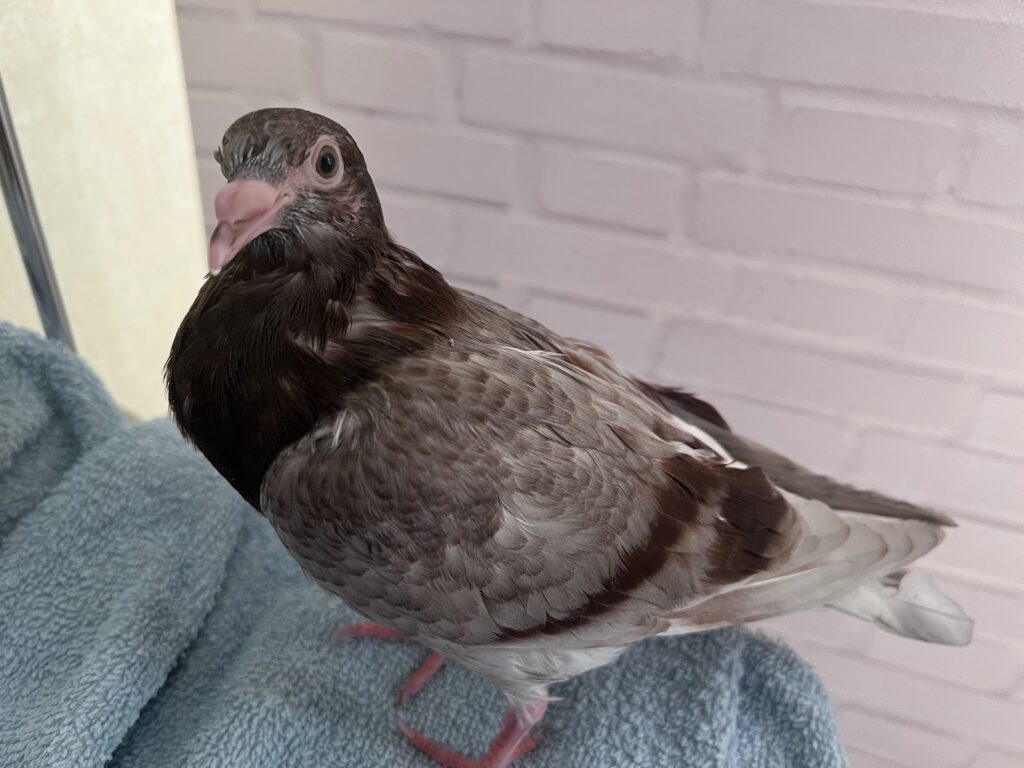
The composition and function of pigeon milk
Nutritional content and composition of pigeon milk
Pigeon milk secretion is a thick, clear liquid, containing large amounts of protein, fat, and carbohydrates. It is also rich in minerals, enzymes, and antibodies. The composition of pigeon milk changes as the chicks grow and their nutritional needs change.
The role of pigeon milk in the growth and development of pigeon chicks
Pigeon milk secretion plays a vital role in the growth and development of pigeon chicks. It provides the necessary nutrients for the chicks to grow and develop properly, and it also helps to strengthen their immune system by providing antibodies. The secretion is fed to the chicks via regurgitation and is their primary source of nutrition for the first few days of life.
Comparison of pigeon milk to the milk of other animals
Pigeon milk is different from the milk of mammals and other animals. The secretion produced by pigeons is not milk in the traditional sense, as it is not produced by mammary glands. Instead, it is a nutrient-rich liquid produced by both parents in their crops. It is also different in terms of composition and function, as it is rich in enzymes, minerals, and antibodies, which are not found in mammalian milk.
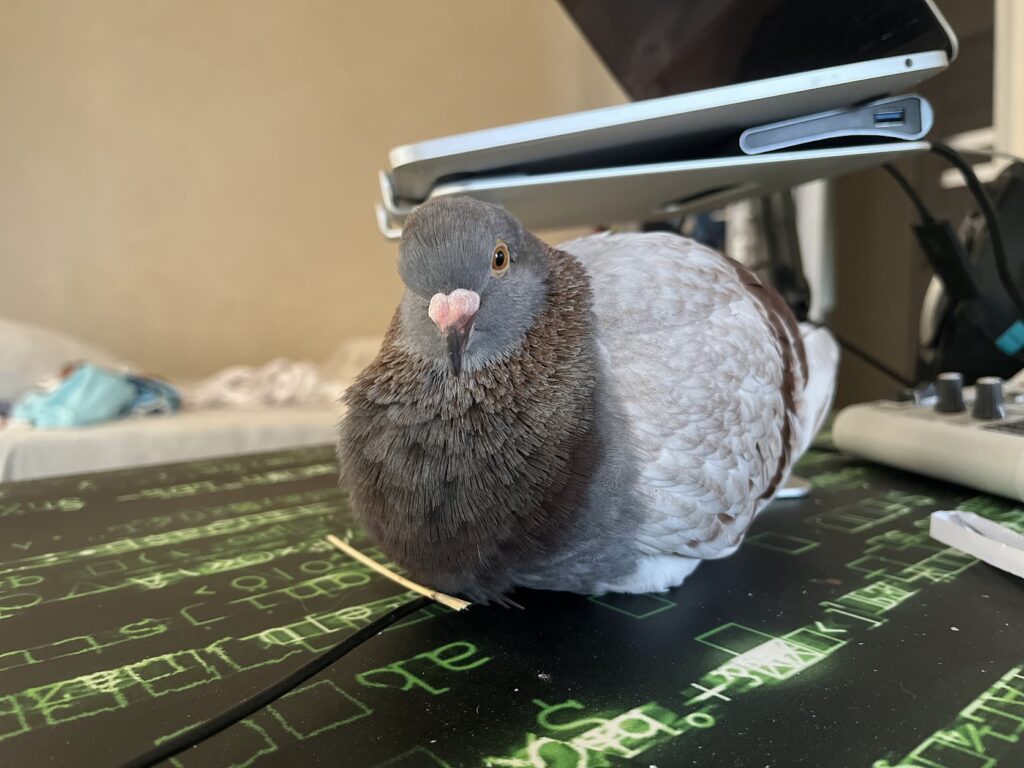
The practical implications of pigeon milk
The potential use of pigeon milk in human consumption
Currently, there is no scientific evidence to support the consumption of pigeon milk by humans, and it is not considered safe for human consumption. It is not known whether the secretion will have the same nutritional value for humans as it does for pigeons chicks.
The impact of pigeon milk production on pigeon breeding and management
Pigeon milk production has no direct impact on pigeon breeding and management as it is a natural process that occurs in the reproductive system of pigeons. However, proper care and management of pigeons, such as providing a healthy diet and living environment, can affect the production and quality of the pigeon milk secretion.
Ethical considerations surrounding the use of pigeon milk
There are currently no known ethical considerations surrounding the use of pigeon milk as it is not considered safe for human consumption and its primary function is to feed pigeon chicks. However, it is important to ensure that any research or experimentation on pigeon milk is done ethically and with the welfare of the pigeons in mind.
Do pigeons produce milk? Conclusion
As a pet pigeon owner, I was curious to learn more about the unique aspects of pigeon biology and came across the topic of “pigeon milk”.
Through my research, I discovered that pigeons do not produce milk in the traditional sense, but rather a secretion called “pigeon milk” that is produced in the crop of both parents and fed to the chicks.
This secretion is not milk in the traditional sense, but rather a nutrient-rich liquid that is produced by the parents in order to feed their chicks.
I also learned that hormones play a crucial role in the production of the secretion in both parents and that pigeon milk is rich in protein, fat, carbohydrates, minerals, enzymes, and antibodies.
This was an interesting discovery, and it gave me a new appreciation for the unique biology of these birds that I have come to love as pets.
Frequently asked questions about pigeon milk
Here are a few most often-asked questions about pigeons making/producing milk.
Do pigeons produce milk?
Pigeons do not produce milk in the traditional sense, but they do produce a secretion called “pigeon milk” that is produced in the crop of both parents and fed to the chicks.
What is the composition of pigeon milk?
Pigeon milk is a thick, clear liquid containing large amounts of protein, fat, and carbohydrates, as well as minerals, enzymes, and antibodies.
How is pigeon milk produced?
Pigeon milk is produced in the crop of both parents, and is produced and secreted in response to the hormone prolactin.
Is pigeon milk safe for human consumption?
Pigeon milk is not currently considered safe for human consumption, as there is no scientific evidence to support its consumption by humans.
How does pigeon milk compare to the milk of other animals?
Pigeon milk is different from the milk of mammals and other animals, as it is not produced by mammary glands and is rich in enzymes, minerals, and antibodies that are not found in mammalian milk.
Do male pigeons make milk?
No, male pigeons do not produce milk. Pigeon milk is a secretion produced by both parents in their crops, both male and female pigeons have the ability to produce it. This secretion is not milk in the traditional sense, but rather a nutrient-rich liquid that is produced by the parents in
Don’t miss these articles:
- Do Pigeons Mate For Life?
- What To Do With Eggs My Pet Pigeon Layed
- How Long Do Pigeon Eggs Take To Hatch?
- How To Tell If A Pigeon Is Male Or Female?
- How Long Do Pigeons Live?

